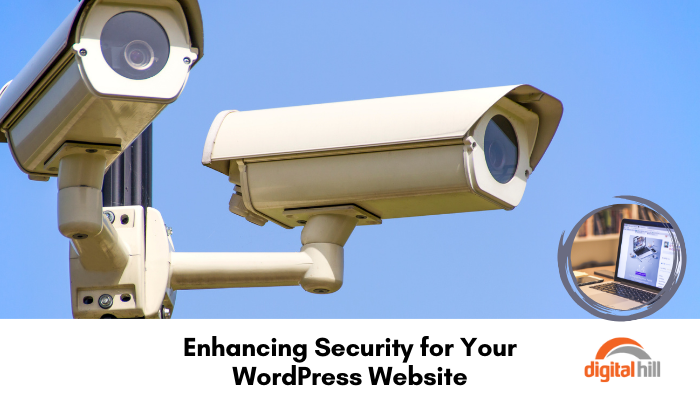Enhancing Security for Your WordPress Website

As a small or mid-sized business owner, you know that ensuring the security of your WordPress website is important. With cyber threats on the rise, protecting your site from potential breaches ensures you maintain your reputation and customer trust. Here are some effective strategies to enhance the security of your business WordPress website.
Understanding the Importance of Website Security
Website security is fundamental to your online presence. According to a CrowdStrike report, 43% of cyberattacks target small businesses. These attacks can result in significant financial losses, data breaches, and damage your reputation. Take proactive measures to secure your WordPress site to help you avoid these risks and keep your business running smoothly.
Conduct a Security Audit
Before implementing new security measures, it’s essential to assess your current security status. Conducting a thorough security audit will help you identify vulnerabilities and areas that need improvement.
How to Conduct a Security Audit:
- Check for Updates: Ensure your WordPress core, themes, and plugins are up to date.
- Review User Accounts: Verify that all user accounts are legitimate and have appropriate access levels.
- Scan for Malware: Use security plugins to scan your site for malware and vulnerabilities.
Use Strong Passwords and Two-Factor Authentication
The most common entry point for hackers is through weak passwords. Implement strong passwords and two-factor authentication (2FA) to significantly enhance your site’s security.
Tips for Strong Passwords:
- Use a mix of at least 8 uppercase and lowercase letters, numbers, and special characters.
- Avoid having the same letter or number twice in a row.
- Avoid common words and phrases.
- Change passwords regularly.
Install Security Plugins
Utilizing security plugins provides an additional layer of protection for your WordPress site. They offer various features, such as malware scanning, firewall protection, and login security.
Recommended Security Plugins:
- Wordfence: This plugin provides comprehensive security features, including a firewall and malware scanner.
- Sucuri: This offers website monitoring, malware removal, and advanced DDoS protection.
Regular Backups
Regular backups ensure that you can quickly restore your site in case of a security breach. Choose a reliable backup solution that automatically backs up your data and stores it securely.
Backup Solutions:
- UpdraftPlus: This popular backup plugin allows you to schedule regular backups and store the backups remotely.
- VaultPress: Provides real-time backups and easy site restoration.
Enable SSL Encryption
SSL encryption is crucial for securing data transmitted between your website and its users. This protects sensitive information of website users such as login credentials and payment details. Google also prioritizes websites with SSL certificates in search ranking results.
Implement a Web Application Firewall (WAF)
Implementing a Web Application Firewall (WAF) protects your site from malicious traffic and attacks. It filters out harmful requests before they reach your server.
Popular WAF Options:
- Cloudflare: Provides a free WAF with basic protection features and paid plans with advanced security.
- Sucuri: Offers a comprehensive WAF with DDoS protection and performance optimization.
Secure Your Login Page
Your login page is a primary target for hackers. Securing it prevents unauthorized access to your WordPress admin area.
Tips to Secure Your Login Page:
- Change the URL: Use plugins like WPS Hide Login to change the default login URL.
- Limit Login Attempts: Installing plugins like Login LockDown restricts the number of login attempts from a single IP address.
- CAPTCHA: Add a CAPTCHA to your login form to prevent automated login attempts.
Monitor Your Website
Regular monitoring helps you detect and respond to security threats promptly. Use security plugins and services that provide you with real-time monitoring and alerts.
Educate Your Team
Ensure that everyone with access to your website understands the importance of security and follows best practices. Regular training can help prevent human errors that could compromise your site’s security.
Key Training Topics:
- How to recognize phishing attempts
- Creating strong, unique passwords
- How to avoid suspicious links and downloads
A Secure Site is a Successful Site
Enhancing the security of your WordPress website is not a one-off task; instead, it is an ongoing process. Conduct regular security audits, use strong passwords, install security plugins, enable SSL encryption, implement a web application firewall, secure your login page, and educate your team, to protect your site from potential threats. Prioritize these security measures to safeguard your business, maintain customer trust, and ensure the long-term success of your online presence.
For more information on how to secure your WordPress site, consider scheduling a consultation with a professional security expert.
